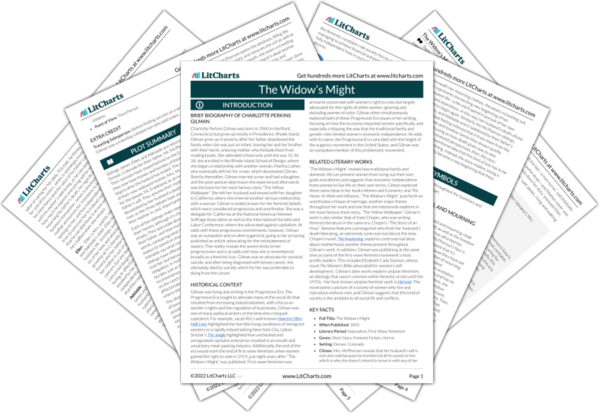Her husband’s death frees Mrs. McPherson from the bonds of duty and obligation that tie women down to home and family. In other words, his death is the beginning of a new life for Mrs. McPherson, one in which she is free to fulfill her own wishes and develop her own sense of self. When Mrs. McPherson declares that she has no children, a shocking statement for a woman and mother to make, she pushes back against the way in which society reduces women to their motherhood alone. Even though her children are grown and don’t need her to care for them anymore, Mr. Frankland, and society at large, still see her as a mother who should be concerned with her children’s well-being first and foremost, rather than her own. She defiantly separates herself from this role in order to reclaim herself, to become her own independent person with an identity separate from motherhood. Her declaration that she is done with duty is simultaneously a declaration that she is done with her family. Her comments reveal an uncomfortable truth at odds with society’s portrayal of what ties a family together. Rather than love each other, the McPhersons simply felt obligated to each other, and each felt repressed by the weight of that obligation and the responsibilities that came with it. Just as her children yearned to escape the ranch and were reluctant to invite her into their homes, Mrs. McPherson is likewise desperate to finally escape duty. The difference is that she is unafraid to say this out loud now, as opposed to her children, who still try to keep up the façade of a loving and caring family.
